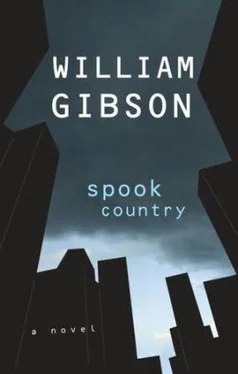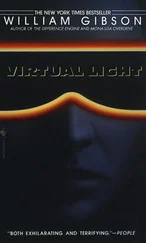“Grandfather was one of the less obvious participants in the formation of the Dirección General de Inteligencia.”
“Carlito told you that?”
“I knew it already. From Juana.”
Tito thought about this as he put the kettle to boil on the element. Their grandfather’s secrets could not have gone with him entirely. Legends grew like vines, through a family like theirs, and the midden of their shared history, however deep, was narrow, constrained by the need for secrecy. Juana, so long in charge of the production of required documents, would have enjoyed a certain overview. And Juana, Tito knew, was the deepest of them all, the calmest, most patient. He often visited her, here. She took him to El Siglo XX Supermarket to buy malanga and boniato. The sauces she prepared for these were of a potency he already found alien, but her empanadas made him feel as if he were blessed. She had never told him about this Semenov, but she had taught him other things. He glanced toward the vessel holding Ochun. “What did Carlito say, about the old man?”
Alejandro looked over his knees. “Carlito said there is a war in America.”
“A war?”
“A civil war.”
“There is no war in America.”
“When grandfather helped found the DGI, in Havana, were the Americans at war with the Russians?”
“That was the ‘cold war.’”
Alejandro nodded, his hands coming up to grip his knees. “A cold civil war.”
Tito heard a sharp click from the direction of Ochun’s vase, but thought instead of Eleggua, He Who Opens And Closes The Roads. He looked back at Alejandro.
“You don’t follow politics, Tito.”
Tito thought of the voices on the Russian Network of America, drowning somehow, taking his Russian with them. “A little,” he said.
The kettle began to whistle. Tito took it off the element and dashed some boiling water into the tchainik. Then he added the two tea bags and poured the water with a habitual fast flourish. He put the lid on.
The way that Alejandro sat on his bed reminded Tito of crouching with his schoolmates, at dawn, to whip a wooden top from one cobble to the next, the day’s heat gathering in the street around them. They had worn pressed white shorts and red scarves. Did anyone spin tops, in America?
Leaving the tchainik to steep, he sat beside Alejandro on the mattress.
“Do you understand how our family came to be what it is, Tito?”
“It began with Grandfather, and the DGI.”
“He wasn’t there long. The KGB needed its own network in Havana.”
Tito nodded. “On Grandmother’s side, we had always been in Barrio de Colón. Juana says before Batista.”
“Carlito says that people in the government are looking for your old man.”
“What people?”
“Carlito says that it reminds him of Havana here now, of the years before the Russians left. Nothing now is business as usual. He tells me that this old man was instrumental in bringing us here. That was a big magic, cousin. Bigger than our grandfather could have worked alone.”
Tito suddenly remembered the smell of the English-language papers, in their mildewed case. “You told Carlito you thought it was dangerous?”
“Yes.”
Tito got up to pour two glasses of tea from the tchainik. “And he told you that our family is under an obligation?” He was guessing. He looked back at Alejandro.
“And that you were specifically requested.”
“Why?”
“You remind him of your grandfather. And of your father, who was working for this same old man when he died.”
Tito passed Alejandro a glass of tea.
“Gracias,” said Alejandro.
“De nada,” said Tito.
M ilgrim was dreaming of the Flagellant Messiah, of the Pseudo Baldwin and the Master of Hungary, when Brown reached down into the hot shallows of his sleep, dug his thumbs into his shoulders, and shook him, hard.
“What is this?” Brown kept asking, a question Milgrim had taken to be purely existential, until Brown had wedged those same thumbs into the junctures of Milgrim’s jaw and skull, hard, producing a degree of discomfort so severe that Milgrim was initially unable to recognize it as pain. Milgrim seemed to levitate through no will of his own, mouth opening to scream, but Brown, green-gloved as ever for these more intimate moments, clapped a hand over it.
He smelled the fresh latex covering Brown’s index finger.
The other hand presented the screen of a BlackBerry. “What is this?”
A personal digital assistant, Milgrim was on the brink of answering, but then squinted through tears, recognizing, on the BlackBerry’s screen, a very short specimen of the IF’s family Volapuk.
The smell of Brown’s glove retreated as Milgrim’s mouth was uncovered. “‘I’m outside,’” Milgrim promptly translated. “‘Are you there?’ Signed A—L—E. ‘Ale.’”
“That’s all?”
“Nothing. Else. There.” Milgrim’s own fingertips massaged the hinges of his jaw. There were big nodes of nerve there. Paramedics used that on overdose victims. It got your attention.
“Ten after two,” Brown said, looking at the screen of the BlackBerry.
“You know your bug works now,” Milgrim offered. “You changed the batteries; now there’s proof it works.”
Brown straightened and returned to his own room, without bothering to close the door.
You’re welcome, thought Milgrim, as he lay back on the bed, eyes open, perhaps to reimagine the Flagellant Messiah.
The stolen Paul Stuart overcoat had contained, in its slash-flapped side pocket, a chunky 1961 paperback history of revolutionary messianism in medieval Europe. Owing to copious underlining in black fountain pen, this copy had most recently sold for $3.50, perhaps to the man from whom Milgrim had stolen the coat.
The Flagellant Messiah, as Milgrim imagined him, was a sort of brightly colored Hieronymus Bosch action figure molded from some very superior grade of Japanese vinyl. Tightly hooded in yellow, the Flagellant Messiah moved about a dun-colored landscape inhabited by other figures as well, all of them rendered in this same vinyl. Some of them were Bosch-influenced: say, an enormous and ambulatory pair of bare buttocks, from between which protruded the wooden shaft of a large arrow. Others, like the Flagellant Messiah, sprang from the stolen history, which he read every night, but after a rather circular fashion. He had never had any interest in this sort of thing before, that he could recall, but now he found it somehow comforting, to have his dreams colored this way.
He saw the IF, for whatever reason, as a bird-headed Bosch creature, pursued by Brown and Brown’s people, a brown-hooded posse astride heraldic beasts that weren’t quite horses, their swirling banners inscribed with slogans in the IF’s Volapuk. Sometimes they journeyed for days into the stylized groves bordering that landscape, glimpsing strange creatures in wooded shadow. At times Brown and the Flagellant Messiah would merge, so that Milgrim sometimes woke from dreams in which Brown tore his own flesh with whips whose barbs were coated with the same grayish green that covered his pistol, flashlight, and monocular.
But this new Devonian sea, the blood-warm shallows in which these visions swam, belonged not to Ativan but to Rize, a Japanese product for which Milgrim had immediately formed a firm respect. There were possibilities inherent in Rize, he sensed, that might only be revealed with further application. There was a sense of mobility that had been lacking recently—though he wondered if that had anything to do with the fact that he was being held captive.
The advent of Rize, though, made it easier to get his head around that concept, captivity, and he was finding that it rankled. He hadn’t been in a very good state at all, when Brown had turned up, and someone with Ativan and orders had seemed like not such a bad idea. Indeed, Milgrim reminded himself, he might be dead now, were it not for Brown. Such were the possibilities of seizures, he knew, should he be withdrawn too quickly from medication. And sources, when one had no money, were problematic at best.
Читать дальше










